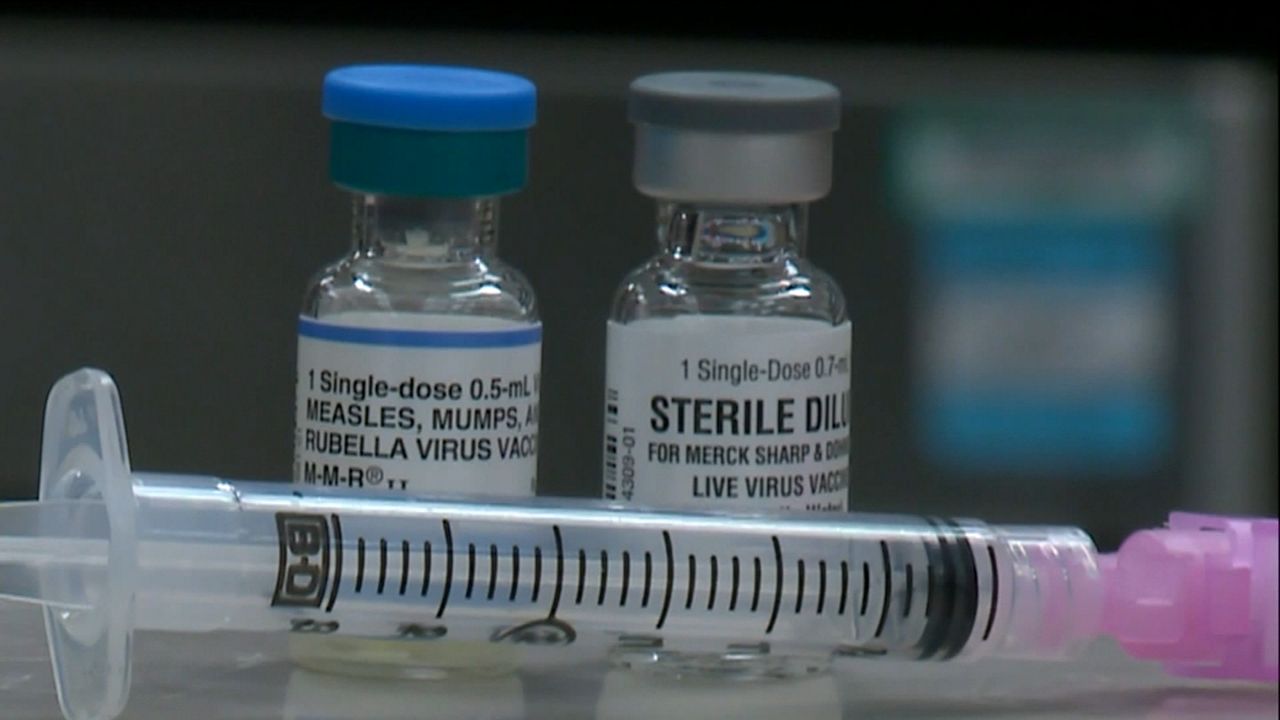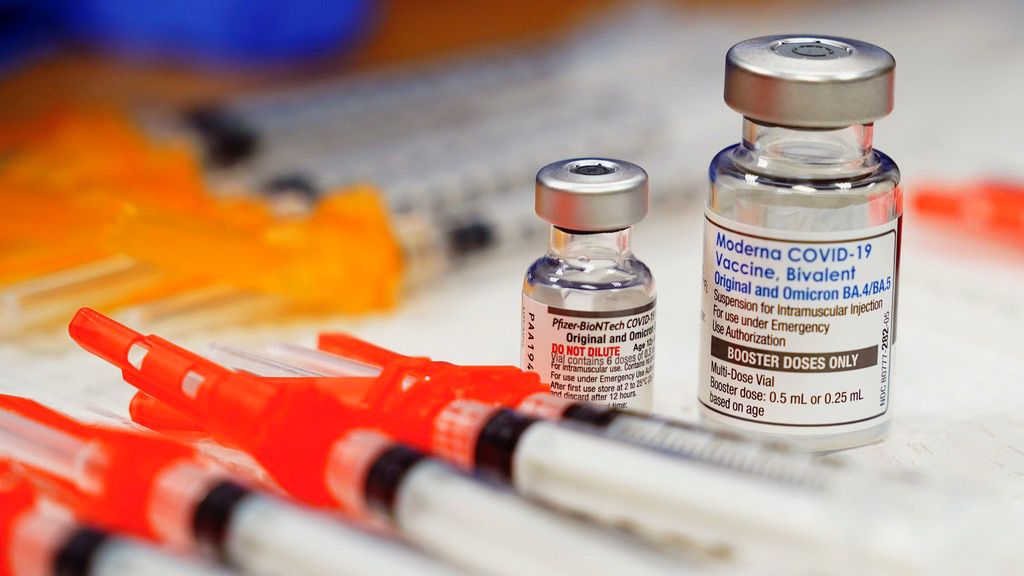OHIO — Ohio Department of Health Director Dr. Bruce Vanderhoff urged residents to get vaccinated for respiratory viruses that are spreading within the state, but also advised Ohioans to protect themselves against historical diseases making a resurgence.
Currently, Ohio is rated "very high" for flu spread, but Vanderhoff said the rate of spread is currently on trend with the five-year average. While cases went down in January, they have spiked so far in November.
For the week ending on Feb. 10, outpatient visits increased 30% compared to the previous week, and emergency department visits also increased by 15%.
Ohio currently has one of the highest influenza spread in the U.S., according to the Centers for Disease Control and Prevention.
There's still about four to six weeks of flu season left, but Vanderhoff warned it's not too late to get vaccinated. Additionally, he discussed the prevalence of respiratory syncytial virus (RSV) and COVID-19.
As for RSV, cases weren't as high as last year so far, though there was a surge in December and January, Vanderhoff said. COVID cases are currently on a downward trend, with around 7,100 cases in the second week of February reported.
"Reports of new variants have caused concern, but each one hasn’t caused an increased level of severity of the disease," Vanderhoff said, adding vaccinations still protect against the new variants.
He urged people over the age of 65 to get the COVID-19 vaccine if they haven't already done so.
"It could save your life," Vanderhoff said.
However, respiratory viruses aren't the only ones that Ohioans should keep themselves protected from. During the press conference, Vanderhoff took time to address other historical diseases that have reemerged lately nationally and in Ohio.
Ohio had an outbreak of the measles in 2022 in a under-vaccinated population, Vanderhoff said. Mostly in central Ohio, 36 of 85 cases required hospitalization due to severe complications.
While Ohio only has three cases reported so far this year — one in Montgomery County, another in Richland and the third in Miami — there is currently a large outbreak in the U.K.
"International travel means an outbreak in one country can reach another country," Vanderhoff said.
Vanderhoff said the common feature with measles cases is that people haven't been vaccinated with the MMR (measles, mumps and rubella) vaccine. Vanderhoff urged people to get the vaccine if they haven't yet, or check with their local health department to see if they have ever received one.
Additionally, another disease that seems to have made a comeback recently is pertussis, otherwise known as whooping cough. Last year, Ohio had 810 cases — the highest number since 2014. This year, there have been 105 cases.
The third disease discussed was meningitis. As of recently in December, a group of children fell ill with the disease in Jefferson County. Vanderhoff said children should receive the meningococcal vaccines between 7th and 11th grades, with a second dose before 12th grade.
The last disease Vanderhoff addressed was the spread of syphilis, which has spread rapidly thoughout the nation and Ohio. According to ODH's report released last year for years between 2018 to 2022, syphilis has largely increased between ages 25 to 44. However, all age groups saw jumps in between those five years.
Between 2016 and 2021, syphilis cases jumped 86%, according to ODH.
On a national level, 203,500 cases were reported in 2022, compared to the 113,739 reported in 2016, according to the CDC.
Vanderhoff said while there may not be a vaccine for syphilis, there are effective treatments. He cautioned women about the possibility of congenital syphilis, which could result in miscarriages, a premature birth or other deformities the child may get — such as blindness — if a woman gives birth while having syphilis.
Vanderhoff urged pregnant women to get tested. They should already be getting screenings twice throughout the pregnancy — one early on and another later in pregnancy.
"The reason we get routine vaccinations is to protect us from organisms, though much less common today, are still around and still a threat," Vanderhoff said.
For more details on how to find vaccines near you, click here.









